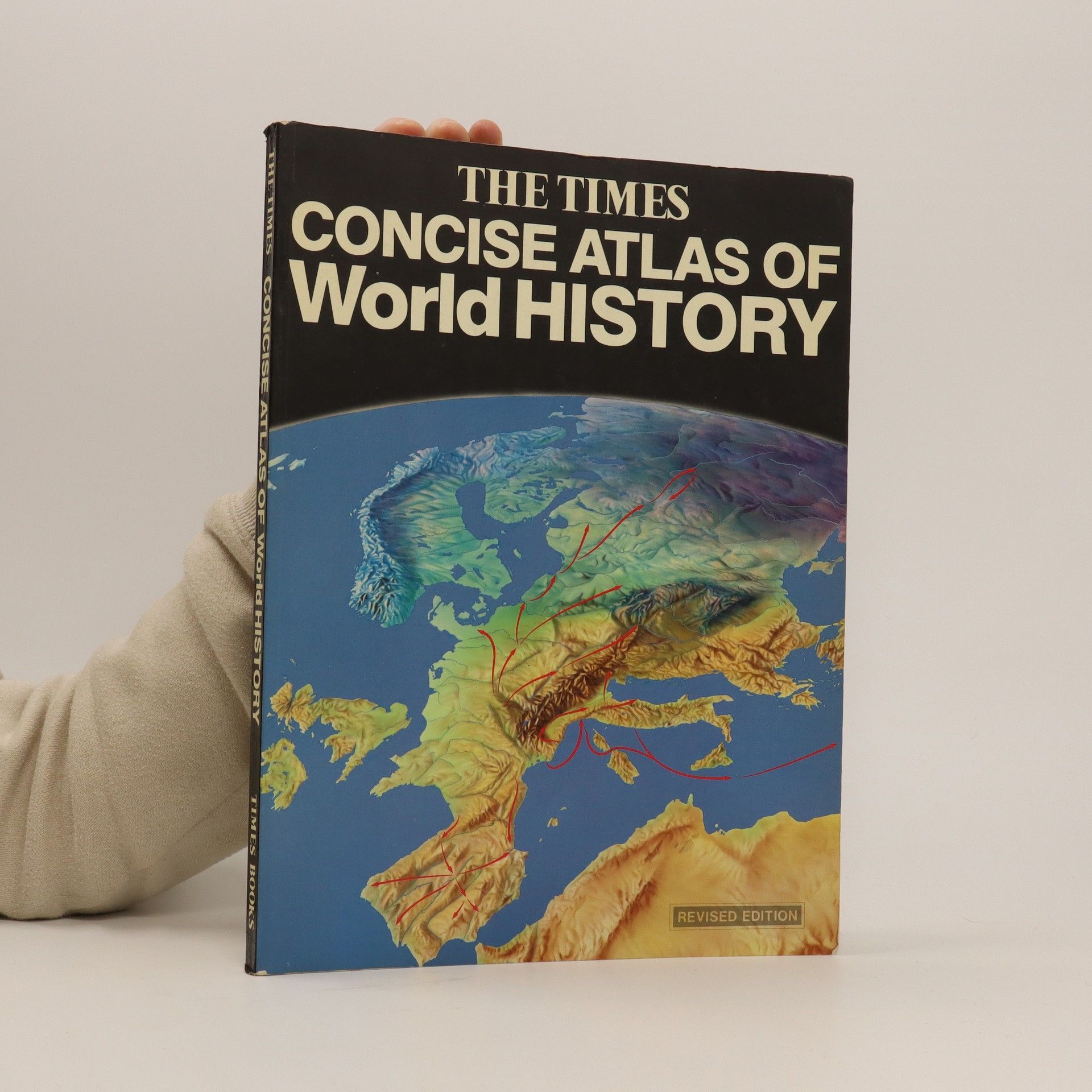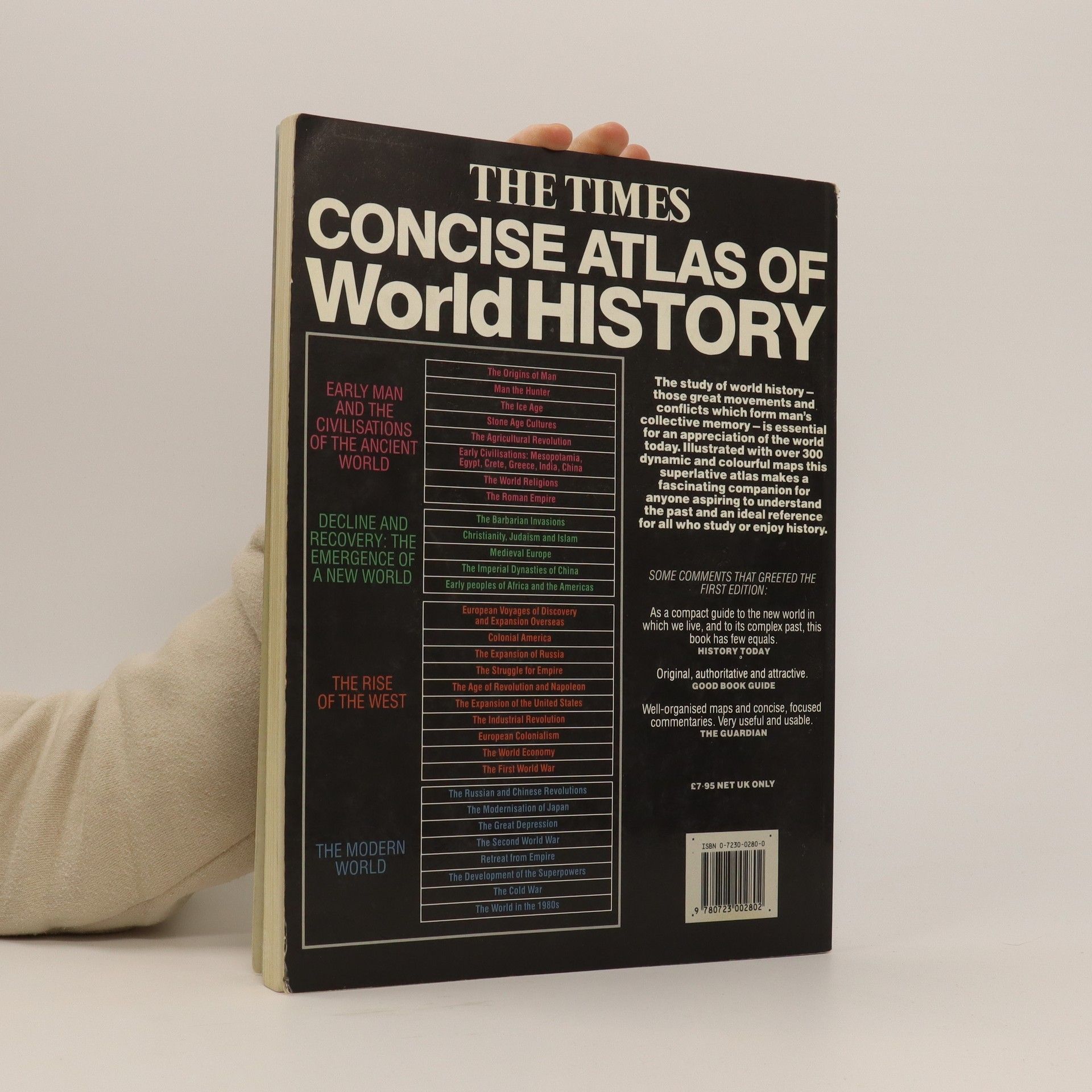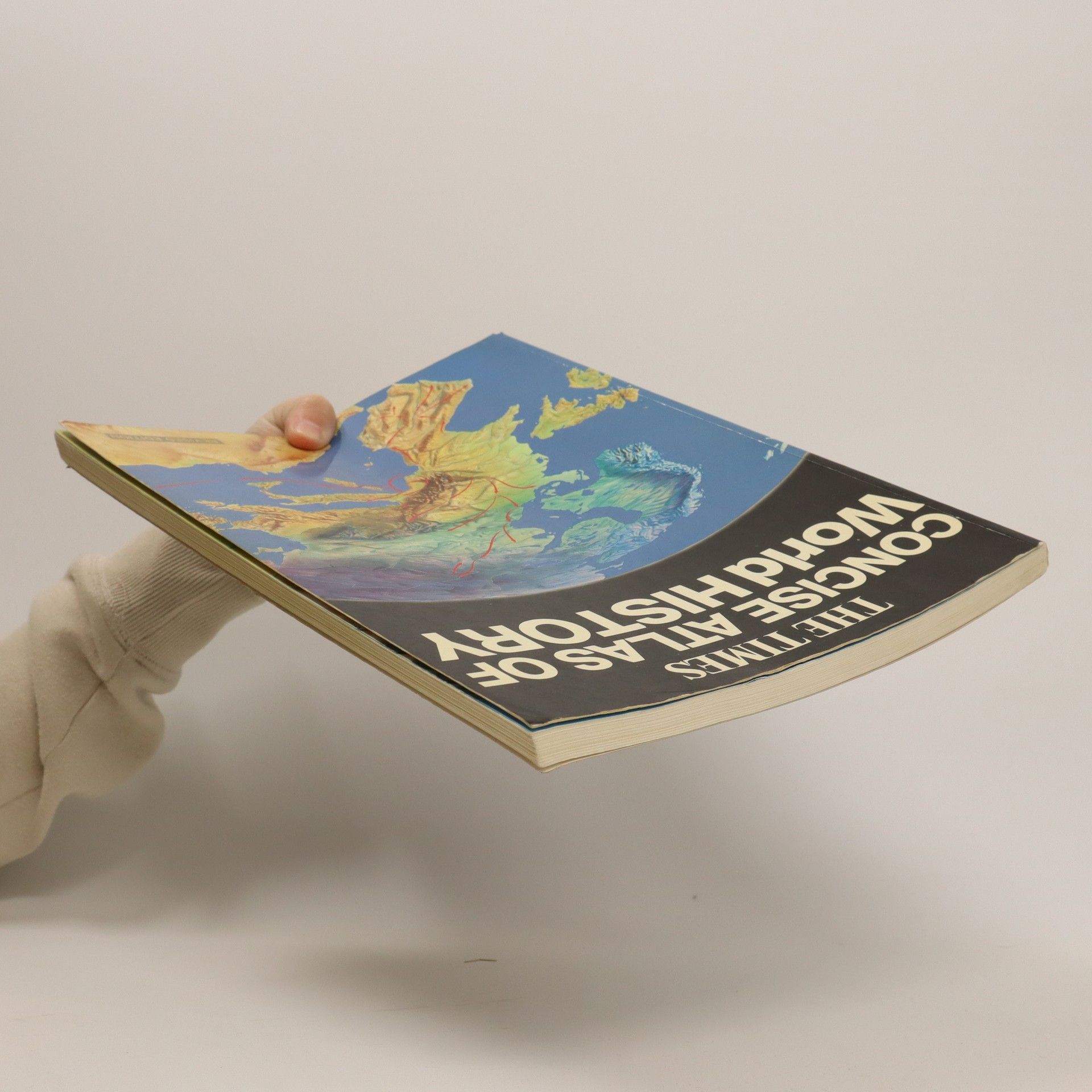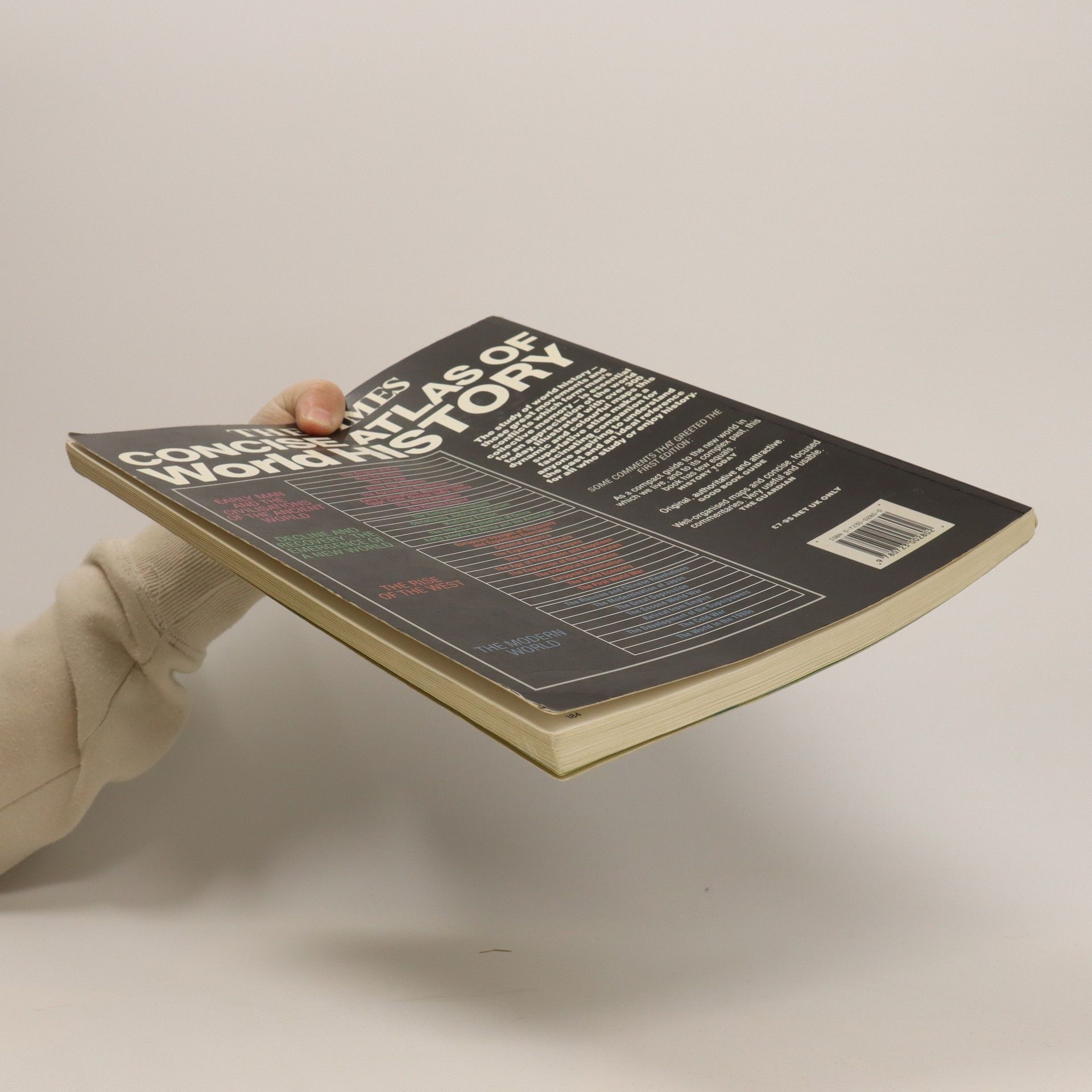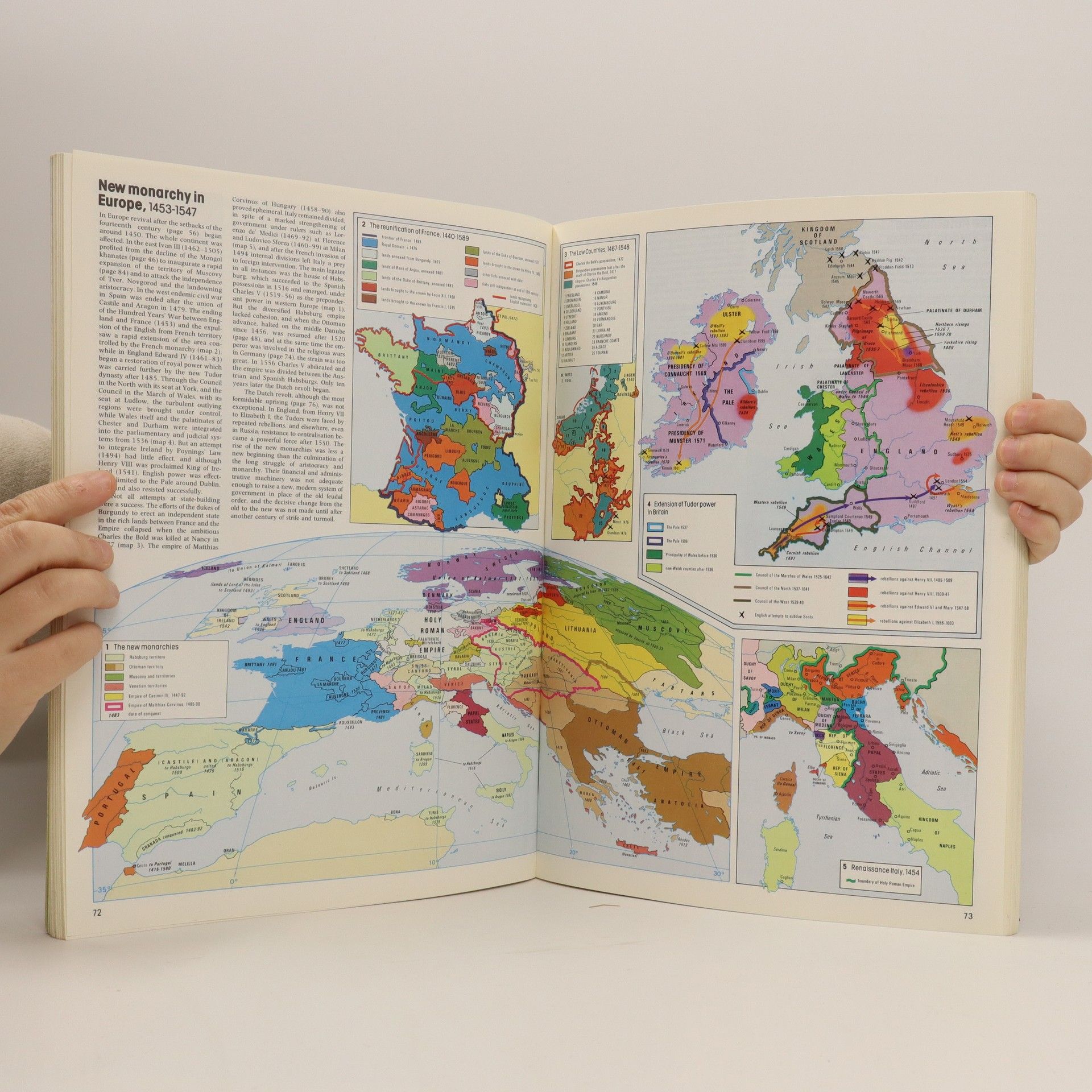Parameters
- 192 pages
- 7 hours of reading
More about the book
The study of world history, encompassing significant movements and conflicts that shape collective memory, is vital for understanding today's world. This atlas, featuring over 300 vibrant maps, serves as an engaging companion for those keen on exploring the past and a valuable resource for history enthusiasts. The text is organized into four key sections, beginning with Early Man and the Civilisations of the Ancient World, which covers topics such as the origins of man, the Ice Age, stone age cultures, the agricultural revolution, early civilisations like Mesopotamia and Egypt, world religions, and the Roman Empire. The second section, Decline and Recovery: the emergence of a new world, addresses the Barbarian invasions, the rise of Christianity, Judaism, and Islam, Medieval Europe, Chinese imperial dynasties, and early African and American societies. The Rise of the West examines European exploration, colonial America, Russian expansion, imperial struggles, revolutions, and the Industrial Revolution, leading up to the First World War. Finally, the Modern World discusses pivotal events such as the Russian and Chinese revolutions, Japan's modernization, the Great Depression, World War II, decolonization, the emergence of superpowers, the Cold War, and the global landscape of the 1980s.
Book purchase
The Times concise atlas of world history, Various authors
- Language
- Released
- 1986
- product-detail.submit-box.info.binding
- (Paperback)
Payment methods
We’re missing your review here.
